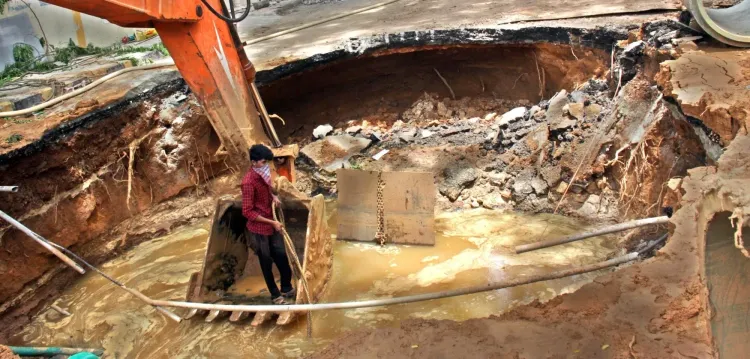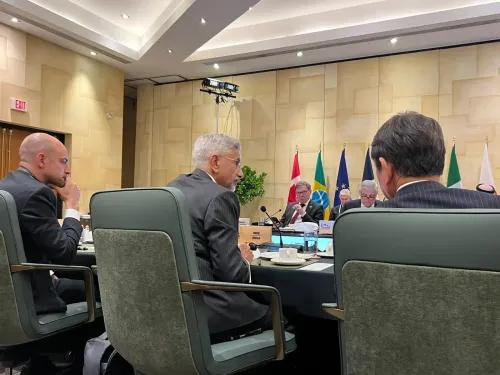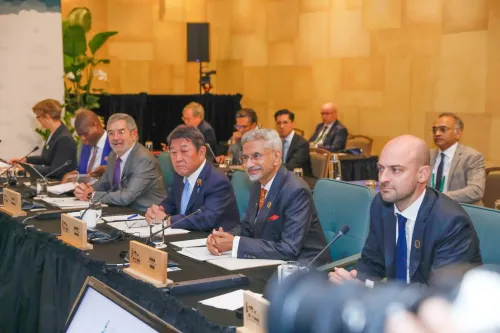Is Tamil Nadu Transforming Its Urban Infrastructure with Rs 3,360 Crore Sewerage Projects?

Synopsis
Key Takeaways
- Investment: Rs 3,360 crore allocated for sewerage projects.
- Beneficiaries: 14 cities will see improvements.
- Infrastructure: Over 3,000 kilometers of sewer pipelines to be installed.
- Health Impact: Transition for five lakh households to modern systems.
- Completion Timeline: Projects to be completed in two years.
Chennai, June 9 (NationPress) In a significant move to bolster urban infrastructure, the Tamil Nadu government is poised to initiate underground sewerage projects valued at Rs 3,360 crore across 14 municipal corporations, as part of the Centre’s Atal Mission for Rejuvenation and Urban Transformation (AMRUT) 2.0 scheme.
AMRUT 2.0 is designed to ensure universal access to vital urban services, including safe drinking water, efficient sewerage systems, and enhanced sanitation.
Tamil Nadu stands out as a frontrunner in executing this initiative, with several significant cities set to gain from the new underground drainage (UGD) developments.
The cities earmarked for the Rs 3,360 crore sewerage enhancement include Tirunelveli, Vellore, Dindigul, Salem, Cuddalore, and Nagercoil, among others. Over 3,000 kilometres of sewer pipelines will be installed, accompanied by the establishment of new sewage pumping stations.
This project aims to transition more than five lakh households from traditional septic tanks to a modern underground sewerage system. Officials from the Municipal Administration and Water Supply (MAWS) Department have indicated that preparatory tasks are nearly finished, with full-scale implementation anticipated to commence within a month.
The works will be executed across various districts and are expected to be finalized within two years.
Sources from the municipal administration noted that each corporation has its own timeline based on the size and complexity of the project.
Officials added, “In addition to enhancing sanitation and public health, the broadened UGD network will greatly diminish pollution in adjacent rivers and water bodies.”
This initiative is part of a comprehensive state-level strategy to modernize urban civic infrastructure under the AMRUT 2.0 framework. In total, over 60 urban local bodies in Tamil Nadu have secured approval for various projects under this scheme.
The total sanctioned expenditure for these initiatives is Rs 14,688 crore, with Rs 4,942 crore being provided by the Union government as central assistance. Officials assert that these investments will not only improve the quality of life in urban areas but will also establish the groundwork for future smart city development and enhanced environmental sustainability throughout the state.









